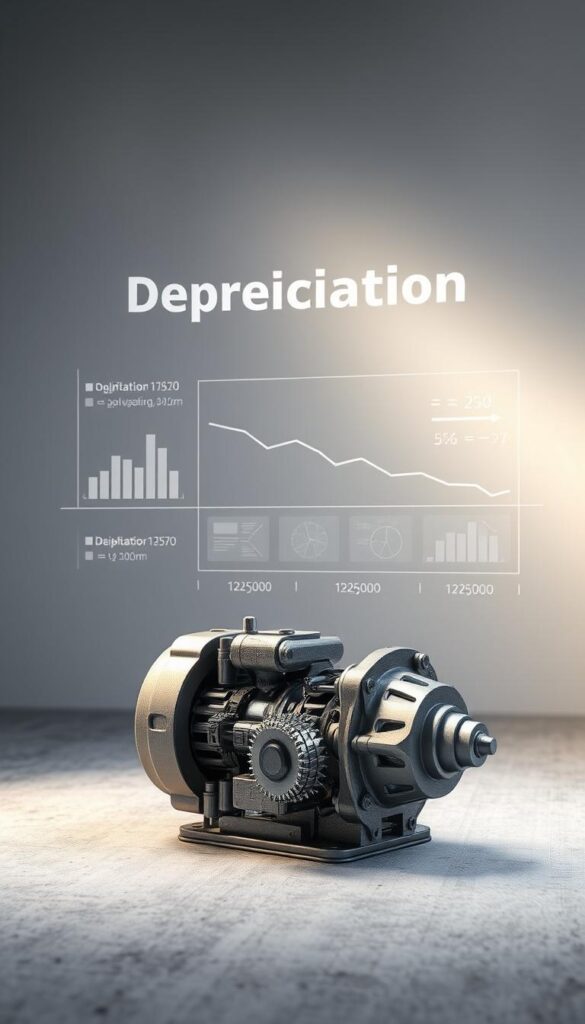Are you leaving money on the table every tax season without even realizing it? The world of tax deductions is often complex and filled with opportunities. Many business owners, including you, might overlook these chances. Understanding tax deductions can greatly reduce your taxable income and improve your financial flexibility.
In this article, we will explore the 10 tax deductions most business owners overlook. We’ll show how these often-missed deductions can lead to big savings. Discover essential tax-saving tips that could change your financial strategy and help you keep more of what you earn.
Key Takeaways
- Up to 20% of qualified business income can be deducted under the QBI deduction.
- Small businesses can initially deduct up to $5,000 in startup costs.
- Petty cash expenses can accumulate quickly if not tracked properly.
- Home office deductions can significantly reduce business-related expenses.
- Business owners can benefit from deducting vehicle expenses using standard mileage rates.
- Advertising costs, regardless of the medium, are fully deductible.
- Charitable donations made by businesses are fully deductible with proper receipts.
Understanding Tax Deductions
Tax deductions are key for business owners to keep their finances in check. A tax deduction is any expense needed to run a business, as the IRS defines. Knowing what expenses you can deduct can really help your business’s bottom line. This includes things like salaries, rent, and materials for your business.
But, personal expenses can’t be deducted. It’s important to know the difference to manage your business taxes well. Knowing what you can and can’t deduct can save you a lot of money during tax time. For example, self-employed people can deduct contractor expenses to lower their taxes.
Keeping good records and knowing all your deductions is key. This helps you deal with the complex world of business taxes.
Expenses like equipment, travel, and education are often deductible. They help you stay ahead in your field. Good bookkeeping helps you find all the deductions you can use, so you don’t miss out.
What is a Tax Deduction?
A tax deduction helps you lower your taxable income by subtracting certain business expenses. By knowing the IRS rules for business deductions, you can save more money. This is key for any business owner.
Expenses are either ordinary or necessary. Ordinary expenses are usual in your business. Necessary expenses help your business grow. It’s important to understand these to plan your taxes well.
New businesses can deduct up to $5,000 of startup costs if they don’t spend more than $50,000. They can also spread out other costs over 180 months.
The IRS lets companies deduct 100% of costs for employee appreciation events. This shows that happy employees can help your business grow. You can also deduct 50% of meal costs if they’re for business.
Using these tax-saving tips can save your business a lot of money. Knowing how to use these deductions is key to not losing money as a business owner.

The Importance of Maximizing Tax Deductions
Maximizing tax deductions is key for small business owners to improve their finances. Many entrepreneurs miss out on tax breaks, leading to overpaying taxes. They can deduct up to $5,000 in startup costs in the first year, but many don’t use this benefit.
It’s important to understand and use available deductions to improve your tax strategy. This can lead to big savings.
Tracking health insurance costs is a must for self-employed individuals. They can deduct these costs, including family coverage. Many overlook this deduction. Also, employee education expenses, like workshops and training, can be fully deducted.
Marketing expenses, such as advertising and website development, are also deductible. This helps reduce taxes and supports business growth. Businesses can also deduct bad debts if they were included in gross income.
Home office expenses are another area where deductions can be maximized. Costs like homeowner’s insurance and utilities can be claimed if the space is used only for business. Keeping detailed records of business use is essential.
The following table highlights some common deductions and their limits:
| Deductions | Limits |
|---|---|
| Startup Costs | $5,000 in the first year |
| Home Office Deduction | $5 per square foot, up to 300 square feet |
| Business Meal Expenses | 50% of qualifying costs |
| Vehicle Expenses | $0.70 per mile |
| Educational Expenses | Fully deductible |
Staying updated on tax laws, like the Tax Cuts and Jobs Act, helps maximize deductions. Keeping detailed records and staying informed can greatly reduce your tax liability.
https://www.youtube.com/watch?v=cephBVusUS4
10 Tax Deductions Most Business Owners Overlook
Many business owners miss out on savings because they overlook tax write-offs. Knowing these deductions can greatly improve your financial health. By using smart tax deduction strategies, you can reduce your tax burden. Here are some often-missed deductions you should look into:
Home Office Deduction
If you work from home, you might be eligible for a home office deduction. This lets you deduct parts of your home expenses like mortgage or rent, utilities, and repairs. You can use the simplified method, which is $5 per square foot up to 300 square feet. This can save a lot for many entrepreneurs.
Self-Employment Tax Deductions
As a self-employed person, you pay a 15.3% self-employment tax for Social Security and Medicare. But, you can deduct half of this tax. This reduces your taxable income and boosts your financial gains.
Advertising and Promotion Costs
Advertising and promotion expenses are fully deductible. This includes website development and digital marketing campaigns. By classifying these as necessary for your business, you can increase your profits through smart tax strategies.

Business Meals and Entertainment Expenses
Learning how to handle business meals and entertainment costs can save you a lot of money on taxes. Knowing the rules for these expenses can help you get valuable tax breaks.
Deducting Business Meals
You can usually deduct 50% of meal costs with clients or partners. These meals must be ordinary and necessary. The meal should not be too fancy, and business talks must happen during it.
Documenting Entertainment Expenses
Most entertainment costs aren’t tax-deductible. But, you can deduct 50% of meal costs during entertainment events. Keeping good records is key. Save receipts and notes on why the expense was for business.

Vehicle Deductions for Business Owners
Vehicle deductions can save you a lot on taxes. Knowing your options can help a lot. Business owners have two main ways to calculate vehicle deductions: the standard mileage rate and the actual expense method.
The standard mileage rate lets you deduct a fixed amount per business mile. For 2024, the IRS says it’s 67 cents per mile. This will go up to 70 cents in 2025. If your car is used 75% for business, you can deduct 75% of expenses. Cars used only for business can deduct 100% of expenses.
The actual expense method lets you deduct the real costs of your vehicle. This includes gas, repairs, insurance, and depreciation. You need to keep all receipts to prove your expenses. If you work from home, trips to client meetings are deductible.
But, driving from home to work is not deductible. You can deduct business mileage for things like client meetings, job site visits, and business errands.

The IRS wants detailed records of your mileage. A mileage-tracking app can help keep track. Keeping a physical log is also good for proof if needed.
| Method | Details | Pros | Cons |
|---|---|---|---|
| Standard Mileage Rate | Deductions based on miles driven | Easy calculations, IRS-approved rate | May not cover all vehicle expenses |
| Actual Expense Method | Deduct actual car-related expenses | Can maximize deductions if expenses are high | Requires meticulous record-keeping |
Choosing the right vehicle deduction method can lower your taxable income a lot. Think about your business’s driving and keep good records. Pick the method that fits your business best to get the most tax benefits.
The Power of Depreciation Deductions
Knowing about depreciation deductions is key for business owners wanting to cut their taxes. This method lets you spread out the cost of assets over their life. There are different ways to claim these deductions, which can greatly benefit your finances.
The Section 179 Deduction is a great choice for small businesses. It lets you write off up to $1,250,000 of the cost for eligible equipment and machinery in one tax year. This can greatly lower your taxable income, making it a key part of saving on taxes.
Bonus Depreciation is another option. It allows businesses to deduct 100% of qualifying property in the year it’s bought. This immediate tax relief can help offset big expenses quickly, improving cash flow when it matters most.
Learning about depreciation deductions can change how you handle taxes. Using these strategies can help your business grow while keeping taxes low. It’s all about smart financial planning and using tax-saving tips to your advantage.

Independent Contractor and Freelance Expenses
Managing your expenses as an independent contractor can really help your finances. You can deduct payments to contractors and freelancers. It’s important to keep good records and know the IRS rules to get the most out of these deductions.
Documenting Contractor Payments
It’s key to keep detailed records of payments to contractors. You’ll need invoices, receipts, and payment records. This helps you prove your deductions if the IRS asks.
Good record-keeping is a smart way to boost your tax savings. Without it, you might miss out on important deductions.
Understanding 1099 Requirements
If you pay a contractor over $600 in a year, you must give them a 1099-NEC form. This form shows the payments you can deduct. It also makes sure you follow IRS rules.
Contractors pay their own self-employment taxes, like Social Security and Medicare. By reporting correctly, you can get better tax benefits.

Employee Benefits and Salaries
Learning how to use employee benefits and salaries for tax planning can really help your business. Benefits like health insurance and retirement plans can be deducted from your taxes. This can lead to big savings.
Wages and salaries for employees are also fully deductible. This includes bonuses and vacation pay, as long as the employee isn’t a sole owner or partner. Following IRS rules helps you use these expenses to your advantage.
It’s key to keep detailed records of all employee costs. This includes health benefits, pension plans, and other perks. Good records help you claim deductions and make audits easier.
Here’s a table showing common employee benefits and if they’re deductible:
| Employee Benefit | Deductibility |
|---|---|
| Health Insurance Premiums | Fully deductible |
| Retirement Plan Contributions (401(k)) | Fully deductible |
| Employee Wages | Fully deductible |
| Bonuses and Commissions | Fully deductible |
| Sick Leave and Vacation Pay | Fully deductible |
By using these benefits and deductions, you can lower your taxable income. Every dollar saved can improve your business’s bottom line and help it grow.

Conclusion
Knowing about business tax deductions is key for business owners wanting to boost their finances. Many overlook big chances to save money that can really help their profits each year. By keeping good records and looking for tax-saving tips, you can make sure your taxes are right and follow the rules. This helps you use all the deductions you can.
Managing your business money well is important. For example, using deductions for health insurance, business meals, and home office can save a lot. A solo owner with $60,000 income could save about $3,000 by deducting $10,000 in health insurance. This shows how knowing and using deductions can really help your business’s bottom line.
Staying up-to-date and talking to tax experts can help you use your tax strategy best. By focusing on using all deductions you can, you can greatly reduce your taxes. Remember, understanding business tax deductions is not just good—it’s necessary for a successful business.
FAQ
What are tax deductions, and why are they important for business owners?
What types of expenses can I deduct as a business owner?
How can I maximize my tax savings through deductions?
What should I document when claiming vehicle deductions?
How does the Home Office Deduction work?
Are meals with clients fully deductible?
How do I handle independent contractor payments for tax deductions?
What is depreciation and why is it important?
Source Links
- Top 10 Legitimate Tax Deductions Small Business Owners Often Miss | Smith.ai – https://smith.ai/blog/top-10-legitimate-tax-deductions-small-business-owners-often-miss
- The 10 Most Overlooked Tax Deductions – https://turbotax.intuit.com/tax-tips/fun-facts/the-10-most-overlooked-tax-deductions/L2WjmvZAH
- 17 Big Tax Deductions (Write Offs) for Businesses | Bench Accounting – https://www.bench.co/blog/tax-tips/small-business-tax-deductions
- 10 Overlooked Tax Deductions for Businesses | DHJJ – https://dhjj.com/10-overlooked-tax-deductions-write-offs-for-businesses/
- 20 Small Business Tax Deductions | Rippling – https://www.rippling.com/blog/small-business-tax-deductions
- Tax Deductions for Small Businesses – https://www.uschamber.com/co/run/human-resources/small-business-tax-deductions
- Ten Overlooked Tax Deductions and Credits – https://www.kiplinger.com/taxes/602075/most-overlooked-tax-breaks-and-deductions
- The 10 Most Common Tax Deductions Small Businesses May Miss – https://www.score.org/resource/article/10-most-common-tax-deductions-small-businesses-might-miss
- 10 Ways to Maximize Your Business Tax Deductions – https://www.araglegal.com/attorneys/learning-center/topics/practice-management-technology/ten-ways-to-maximize-business-tax-deductions
- 25 Small Business Tax Deductions (Write Offs) in 2025 – https://www.freshbooks.com/hub/expenses/tax-deductions-small-business?srsltid=AfmBOoqDc-teNiQ4o_E92V6Zsf5WQFzvZH4ny5L7fUZHyPeQ6iyaV_QN
- Council Post: Maximizing Your Tax Savings: 15 Overlooked Deductions For Business Owners – https://www.forbes.com/councils/forbesfinancecouncil/2023/04/12/maximizing-your-tax-savings-15-overlooked-deductions-for-business-owners/
- Council Post: Five Tax Deductions Most Business Owners Miss – https://www.forbes.com/councils/forbesbusinesscouncil/2024/02/27/five-tax-deductions-most-business-owners-miss/
- Seven Overlooked Tax Deductions for the Self-Employed – https://www.kiplinger.com/taxes/income-tax/603972/most-overlooked-tax-deductions-and-credits-self-employed
- 16 Tax Deductions and Benefits for the Self-Employed – https://www.investopedia.com/articles/tax/09/self-employed-tax-deductions.asp
- 25 Small Business Tax Deductions (Write Offs) in 2025 – https://www.freshbooks.com/hub/expenses/tax-deductions-small-business?srsltid=AfmBOoqCeTSdJhbP7b-tzY_XSF62IiSAE6QHy_scgAkbBPvAqScYKcPb
- Driving Down Taxes: Auto-Related Tax Deductions – https://turbotax.intuit.com/tax-tips/self-employment-taxes/driving-down-taxes-auto-related-tax-deductions/L8XmDYQII
- Mileage tax deduction for small business: How to calculate and deduct – https://www.nextinsurance.com/blog/mileage-tax-deduction/
- 23 Common Tax Deductions for Small-Business Owners – https://www.ramseysolutions.com/taxes/small-business-tax-deductions?srsltid=AfmBOopZuZiKanY9zuNcEIMV98l4sghaKGYy1hLUOq2A8v3cdqgfh9MF
- 19 Most Popular Tax Deductions for Small Businesses | MileIQ – https://mileiq.com/blog/tax-deductions-for-small-businesses
- 34 Big Tax Deductions (Write-Offs) for Businesses in 2025 – https://mycpacoach.com/blog/small-business-tax-deductions/
- Top 10 Write-Offs for Independent Contractors | Decimal – https://www.decimal.com/blog/write-offs-for-independent-contractors
- 20 Tax Deductions for Self-Employed People – https://turbotax.intuit.com/tax-tips/self-employment-taxes/top-tax-write-offs-for-the-self-employed/L7xdDG7JL
- 25 Small Business Tax Deductions (Write Offs) in 2025 – https://www.freshbooks.com/hub/expenses/tax-deductions-small-business?srsltid=AfmBOop0dtPeee0pIiHHOFU9QZRIkjUbOSS480XdqAkXIj5FmaQuTrwy
- 21 Small-Business Tax Deductions You Need to Know – NerdWallet – https://www.nerdwallet.com/article/small-business/small-business-tax-deductions-guide
- 5 Tax Breaks Overlooked by Small Business Owners – https://www.investopedia.com/articles/personal-finance/031815/5-tax-breaks-overlooked-small-business-owners.asp
- 23 Common Tax Deductions for Small-Business Owners – https://www.ramseysolutions.com/taxes/small-business-tax-deductions?srsltid=AfmBOopYlwQInGgmeG4vEnu21HyYN4iwv6_aN20-i7L3LHKgL_aZGsMF